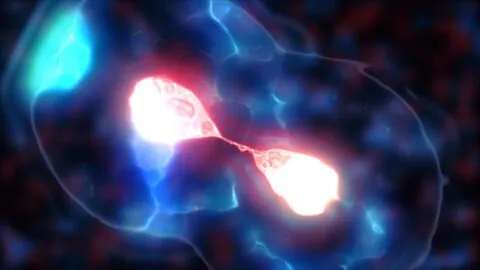April 22, 2025
Clonal hematopoiesis, a condition linked to numerous age-related disorders, can be caused by overachieving mitochondria, and it may be susceptible to drugs such as MitoQ and metformin [1]. The attack of the clones The human body constantly produces vast numbers of blood cells from hematopoietic stem and progenitor cells (HSPCs). Over time, some HSPCs may...
December 05, 2024
In a study published in Aging Cell, researchers have outlined a relationship between mitochondrial fragmentation in skeletal muscle and the loss of strength with age. Broken power plants Why We Age: Mitochondrial DysfunctionAs they age, the mitochondria in our cells lose their ability to provide cellular energy and release reactive oxygen species that harm cells...
August 26, 2024
Researchers have described a relationship between the NAD+ regulator CD38, mitochondrial function, and the gradual destruction of bone in Aging Cell. Inflammation up, bone mass down Nicotinamide Adenine Dinucleotide (NAD): Benefits and ResearchNicotinamide adenine dinucleotide (NAD) is a coenzyme found in all living cells. It is a dinucleotide, which means that it consists of two...
July 30, 2024
In Aging Cell, researchers have published a paper on a cellular energy source that appears to be a key signaling molecule in sarcopenia. A little-explored molecule Sarcopenia, a condition that increases with aging, reduces muscle mass in older people, and leads to a decreased quality of life [1], has been documented to have multiple root...
June 25, 2024
For the first time, scientists have shown that the abundance of proteins needed for mitochondrial energy production in human brains is linked to perceived psychosocial experiences [1]. Picking the brains Negative psychosocial experiences have been linked to health problems by numerous studies. However, not enough is known about the concrete mechanisms at play. In this...
May 03, 2024
A recent study saw researchers associated with Cellvie demonstrate significant improvements to mitochondria and muscle function in aged mice by injecting additional mitochondria [1]. Mitochondrial dysfunction is a reason we age Why We Age: Mitochondrial DysfunctionAs they age, the mitochondria in our cells lose their ability to provide cellular energy and release reactive oxygen species...







